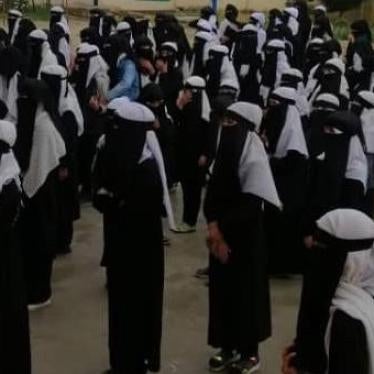(New York) - Iran secretly hanged a juvenile offender early today despite a flawed trial, a stay of execution and an unequivocal international ban on such executions, Human Rights Watch said. Delara Darabi, 22, was executed for a killing that she was alleged to have committed when she was 17 years old.
The execution was carried out at Rasht Central Prison despite a two-month stay of execution in the case issued on April 19, 2009, by the head of the Judiciary. This is the second known execution of a juvenile offender in Iran this year. Iran leads all countries of the world in executing juvenile offenders.
"It appears that Iran's head of Judiciary has no ability to control even his own judges," said Zama Coursen-Neff, deputy director of the children's rights division at Human Rights Watch. "This is an outrageous violation of Iranian as well as international human rights law, and a callous affront to basic human dignity."
The UN Convention on the Rights of the Child - an international treaty to which Iran is a party - clearly bans the execution of offenders who committed a crime when under the age of 18. Since January 2005, only four other countries are known to have executed juvenile offenders: Saudi Arabia, Sudan, Pakistan, and Yemen.
Neither Darabi's lawyer nor her family were informed prior to the execution, despite the fact that Iranian law requires that authorities inform a prisoner's lawyer at least 48 hours ahead of an execution.
The Iranian human rights lawyer Mohammad Mostafaei, who has been a leading advocate in Iran against imposing the death penalty on juvenile offenders, told Human Rights Watch that he spoke with Darabi's parents after her execution. They had paid a routine visit to her in prison on Thursday, April 30. She told them at that time that a judicial official had informed her that an appeal would be granted in order for new evidence to be heard in her case.
Mostafaei said that at 7 a.m. on May 1, Darabi called her parents to say that she could see the hangman's noose, pleading: "Mother they are going to execute me, please save me." Speaking to her father, she said she wanted to see them, and added: "In the name of God please save me." Mostafaei told Human Rights Watch that a prison official abruptly took the handset from Darabi's hands and informed the parents: "We will easily execute your daughter and there's nothing you can do about it."
Darabi's parents rushed to the prison and begged to see their daughter. Officials rejected their pleas.
Iranian authorities may have ordered the secret execution in order to avoid the international outcry that occurred when Darabi was scheduled to be executed on or around April 20, Human Rights Watch said.
"Iran continues to deny that it executes juvenile offenders, but the secret nature of this execution demonstrates that the government knows that these killings are illegal and shameful in the eyes of the world," Coursen-Neff said. "Iran urgently needs to change this policy, which isolates it from the rest of the world."
Darabi had spent the last five years in prison for the alleged murder of her father's cousin in September 2003. According to her lawyer, Samad Khorramshahi, her trial was marred by a lack of evidence of her guilt and repeated refusal by the court to accept evidence that could have exonerated her. Her plight had gained international attention, and exhibits of her prison art work attracted attention to Iran's record of routine executions of juvenile offenders.
On January 21, Iran executed a 21-year-old Afghan citizen, Molla Gol Hassan, in Tehran's Evin prison for a crime allegedly committed when he was 17 years old. According to figures available from human rights lawyers in Iran, at least 130 juvenile offenders are on death row in Iran.
During a telephone conversation today between Human Rights Watch and Khorramshahi, Darabi's lawyer, Darabi's mother could be heard crying and asking why this had happened to her daughter.
"This travesty of justice in Iran has taken the life of a woman who was not given a fair chance to defend herself," Coursen-Neff said. "Those responsible didn't even give Delara's mother a chance to say goodbye to her daughter."





